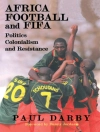Newly available in paperback, this book overturns existing understandings of the origins and futures of the War on Terror for the purposes of International Relations theory. It demonstrates why this is not a war in defence of the integrity of human life, but a war over the political constitution of life in which the limitations of liberal accounts of humanity are a fundamental cause of the conflict. The question of the future of humanity is posed by this war, but only in the sense that its resolution depends on our abilities to move beyond the limits of dominant understandings of the human and its politics.
Theorising with and beyond the works of Foucault, Deleuze, Baudrillard, Virilio and Negri, this book examines the possibilities for such a movement. What forms does human life take, it asks, when liberal understandings of humanity are no longer understood as horizons to strive for, but impositions against which the human must struggle in order to fulfil its destiny? What forms does the human assume when war against liberal regimes becomes the determining condition of its possibility? Answers to such questions are pressing, this book argues, if we earnestly desire an escape from the current impasses of international politics.
İçerik tablosu
Preface
1. War and liberal modernity: a biopolitical critique
2. Logistical life: war, discipline, and the martial origins of liberal societies
3. Nomadic life: war, sovereignty, and resistance to the biopolitical imperium
4. Defiant life: the seductions of Terror amid the tyranny of the human
5. Circulatory life: 9/11 as architectural catastrophe and the hypermodernity of Terror
6. Biopolitical life: the ‘war against war’ of the multitude
Epilogue
Index
Yazar hakkında
Julian Reid is Lecturer in International Relations at King’s College London












